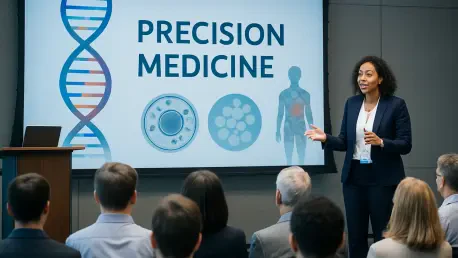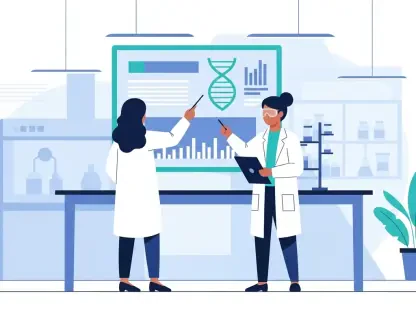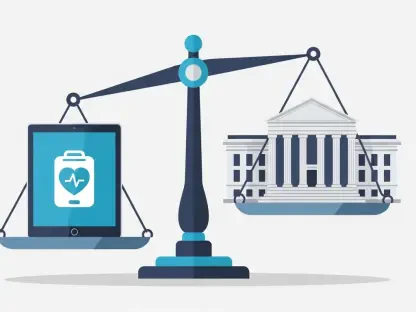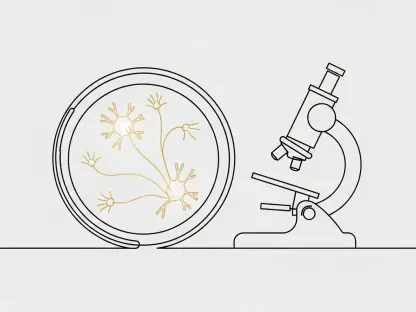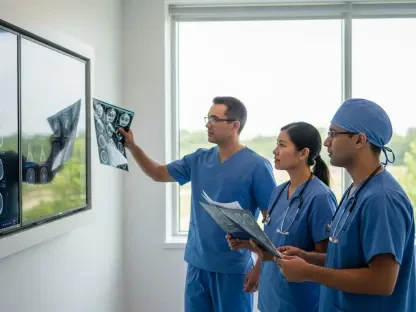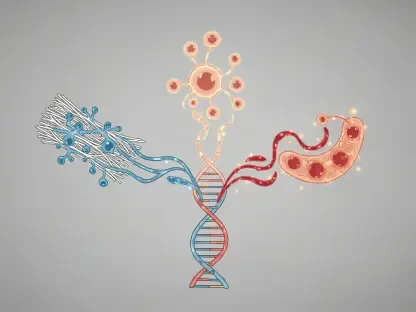In an era where personalized healthcare is reshaping the landscape of medical treatment, the WIN Symposium stands as a beacon of innovation, and this year, it is set to make a profound impact under the leadership of Dr. Wafik S. El-Deiry, MD, PhD, FACP, Editor-in-Chief of Oncotarget. Scheduled for October 3rd and 4th at the Pennsylvania Convention Center in Philadelphia, this significant event is integrated into the Advancing Precision Medicine (APM) Annual Conference, drawing global attention to the future of precision oncology and translational medicine. It serves as a dynamic platform where luminaries from oncology, industry pioneers, policymakers, and patient advocates converge to explore groundbreaking strategies for patient care. Dr. El-Deiry’s stewardship promises an agenda rich with scientific discovery and clinical relevance, emphasizing the integration of complex data to revolutionize therapeutic approaches. This symposium is not merely a meeting of minds but a catalyst for transformative change, pushing the boundaries of what is possible in modern medicine across multiple disciplines.
Revolutionizing Healthcare Through Multi-Omics Integration
The core of this year’s WIN Symposium lies in the transformative potential of multi-omics integration, a sophisticated approach that merges data from genomics, epigenomics, transcriptomics, proteomics, and metabolomics to unravel the intricate nature of diseases like cancer. This methodology enables researchers and clinicians to pinpoint predictive biomarkers and decipher resistance mechanisms that often hinder effective treatment. By offering a comprehensive view of biological systems, multi-omics paves the way for innovative diagnostic tools and targeted therapies that are tailored to individual patient profiles. Attendees will have the opportunity to engage with cutting-edge presentations and discussions that highlight how this approach is redefining the standards of prognosis and treatment, particularly in oncology, while also showing promise for other medical fields. The symposium’s focus on this technology underscores a pivotal shift toward precision in healthcare delivery.
A striking feature of the event is the molecular tumor board, which exemplifies the practical application of multi-omics in clinical settings by providing real-time analysis of patient cases. This initiative integrates multidimensional data to inform therapeutic decisions, offering a glimpse into how high-level scientific insights can directly enhance patient outcomes. Unlike traditional methods that often rely on generalized protocols, this board demonstrates a personalized model of care that could set a new benchmark for medical practice. The discussions surrounding this tool will likely inspire attendees to consider how such data-driven strategies can be adapted to diverse healthcare environments, bridging the gap between laboratory research and bedside application. This emphasis on actionable science ensures that the symposium remains grounded in its mission to improve real-world health results, making it a critical forum for advancing precision medicine.
Building Bridges Through Global Collaboration
Interdisciplinary collaboration stands as a defining pillar of the WIN Symposium, reflecting the ethos of the WIN Consortium, a robust network comprising 34 esteemed academic medical centers, research entities, and industry partners spanning the globe. This event creates a unique space where experts from oncology, neurology, cardiovascular medicine, and rare disease research come together to address the complex challenges of modern healthcare through shared knowledge and resources. The diverse perspectives brought by participants foster a holistic dialogue that transcends traditional boundaries, encouraging innovative solutions that are applicable across various medical domains. This collaborative framework is designed to accelerate progress by ensuring that no single discipline operates in isolation, but rather contributes to a collective effort to enhance patient care on a worldwide scale.
Highlighting the power of such partnerships, the symposium will feature discussions on pioneering clinical trials like the WINTHER trial, which integrates transcriptomics with genomics to craft highly individualized treatment plans. This trial represents a significant leap forward in clinical research, showcasing how global networks can pool expertise to design therapies that are uniquely suited to each patient’s molecular profile. Beyond specific trials, the event will explore how collaborative efforts can drive systemic change in healthcare, from shaping research initiatives to influencing policy development. The emphasis on cross-border and cross-sector cooperation ensures that breakthroughs are disseminated widely, maximizing their impact. Attendees will leave with a deeper appreciation for the role of unity in tackling some of medicine’s most pressing issues, inspired to forge new alliances in their own professional spheres.
Navigating Challenges and Championing Inclusivity
The WIN Symposium goes beyond celebrating scientific advancements by tackling the critical challenges that accompany the rapid evolution of precision medicine, such as ethical dilemmas, regulatory complexities, and the integration of artificial intelligence in clinical practice. Sessions dedicated to these topics will examine how to balance technological innovation with the need to protect patient privacy and ensure equitable access to emerging therapies. The role of big data analytics in healthcare, while promising, raises questions about consent and fairness that demand careful consideration. By addressing these issues head-on, the event demonstrates a commitment to responsible progress, ensuring that advancements do not outpace the frameworks necessary to safeguard patient welfare. This mature perspective is essential for building trust in new medical technologies and practices.
Equally important is the symposium’s dedication to inclusivity, evidenced by complimentary access provided to students, healthcare providers, and researchers affiliated with academic, governmental, or non-profit organizations. This initiative democratizes access to cutting-edge knowledge, creating opportunities for emerging professionals to engage with established leaders through competitive abstract presentations and networking events. Such an open environment nurtures the exchange of fresh ideas and perspectives, empowering the next generation of scientists and clinicians to contribute meaningfully to the field’s growth. This focus on broadening participation not only enriches the event’s discussions but also strengthens the global research community by fostering diversity and collaboration. The symposium thus serves as a vital platform for cultivating talent and driving innovation from all corners of the medical world.
Shaping the Future of Personalized Medicine
Reflecting on the WIN Symposium held under Dr. Wafik S. El-Deiry’s chairmanship at the APM Annual Conference in Philadelphia, it became clear that the event marked a significant milestone in the journey of precision oncology and translational medicine. The integration of multi-omics data emerged as a game-changer, offering profound insights into disease mechanisms that paved the way for tailored therapeutic strategies. Meanwhile, the collaborative spirit fostered by the WIN Consortium and reflected in every session underscored the power of global partnerships in addressing complex health challenges. The event’s commitment to tackling ethical and regulatory issues alongside scientific progress ensured a balanced approach to innovation.
Looking ahead, the symposium’s legacy can be carried forward by prioritizing sustained collaboration among diverse stakeholders to refine and expand precision medicine applications. Institutions and professionals are encouraged to build on the molecular tumor board model, integrating it into routine clinical practice to enhance patient care. Additionally, ongoing dialogue about data ethics and AI integration should guide policy development to ensure equitable access to advancements. By continuing to invest in inclusive platforms for knowledge sharing, the medical community can transform the insights gained from this event into lasting improvements in healthcare delivery worldwide.
